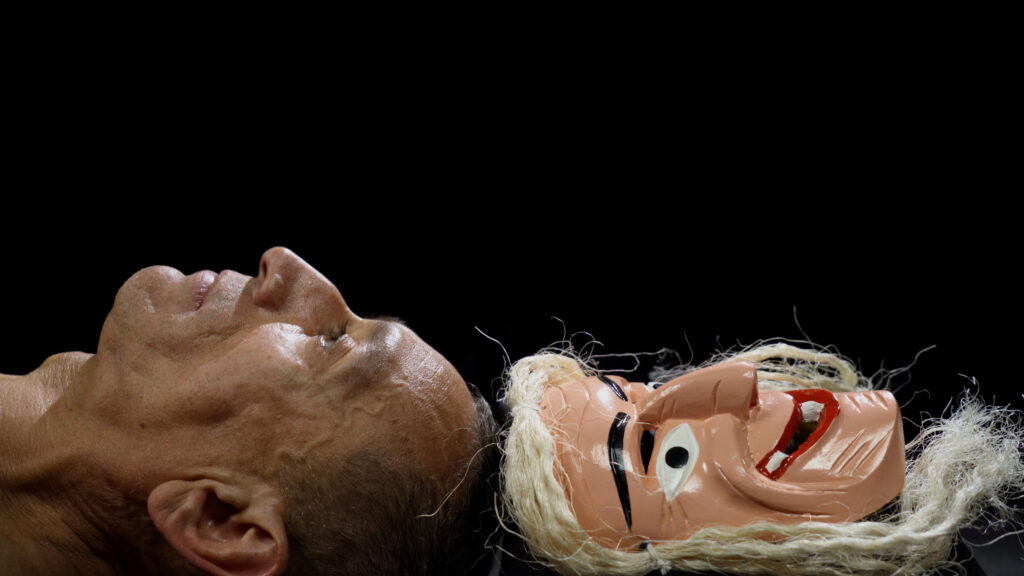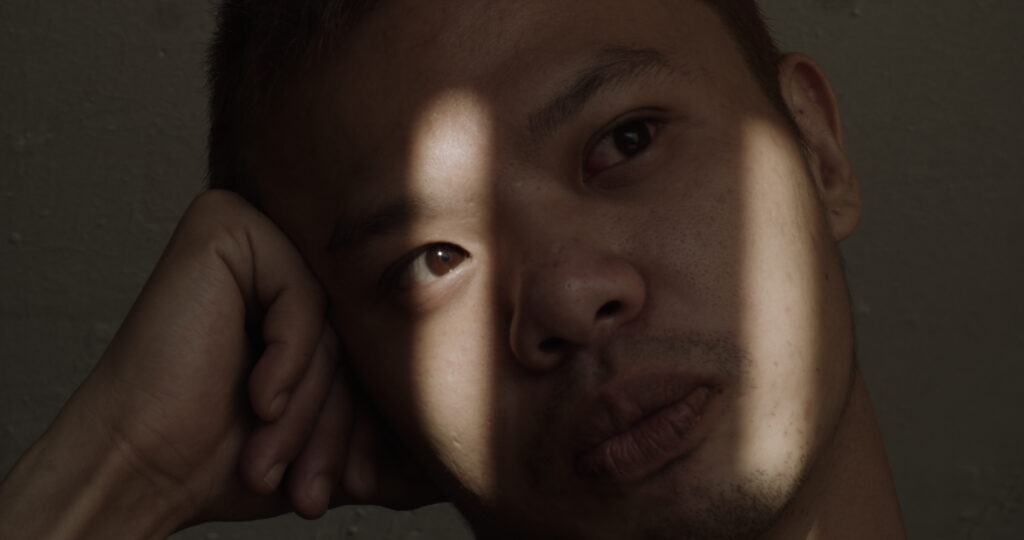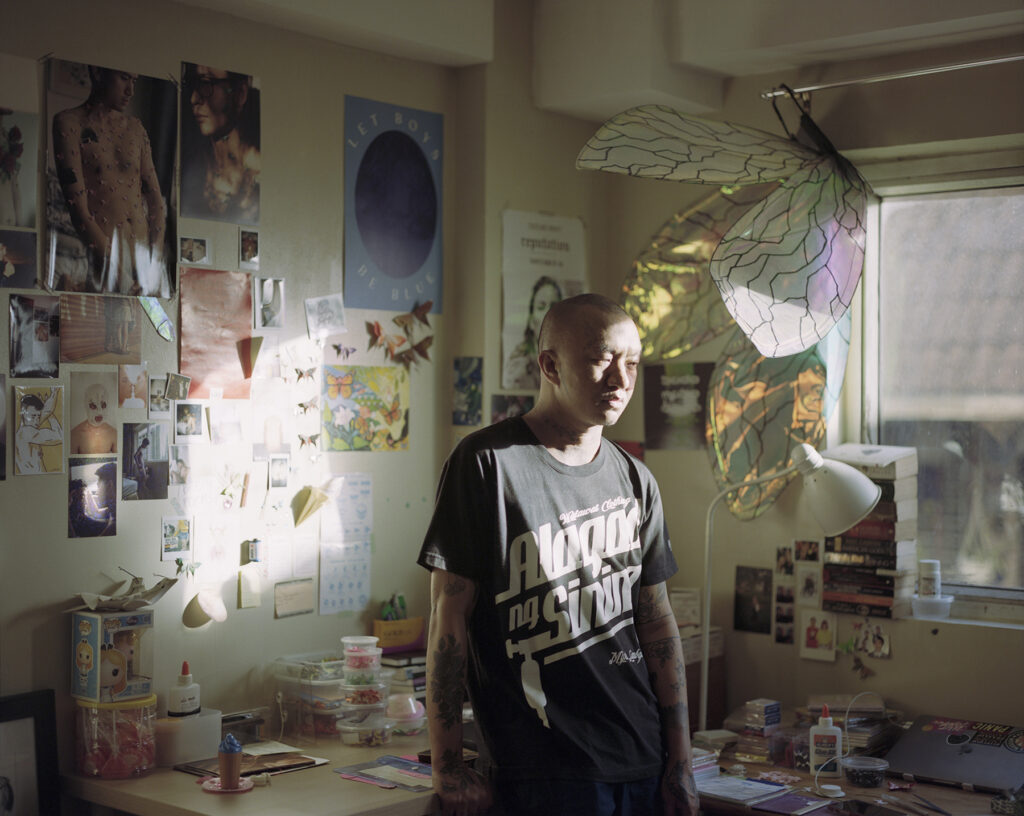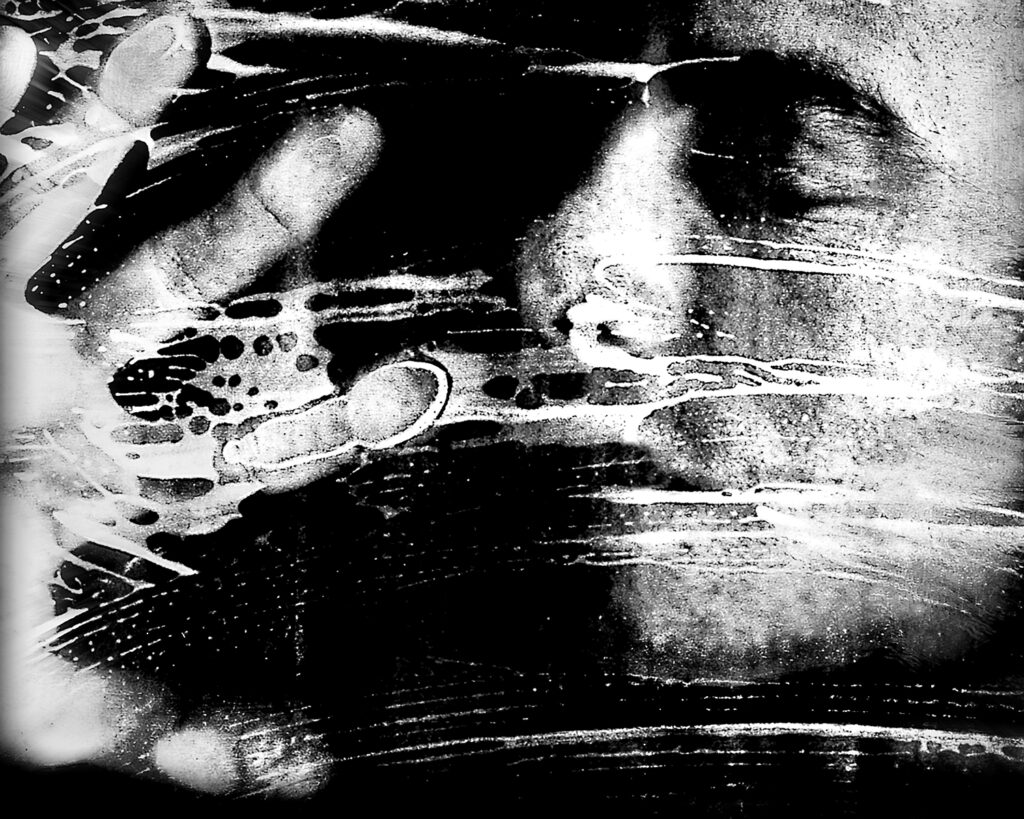
Day With(out) Art 2023: Everyone I Know is Sick
This year for Day With(out) Art 2023, Visual AIDs presented a five video series called Everyone I Know is Sick. This video series focused on showing connections between HIV and other illnesses and disabilities, and it highlights various experiences with HIV, COVID, mental, health, aging, and more. The artists featured in this series are Dorothy Cheung (Hong Kong), Hirua Fernandes & Lili Nascimento (Brazil), Beau Gomez (Canada/Philippines), Dolissa Medina & Ananias P. Soria (USA), and Kurt Weston (USA), illustrating the different ways HIV/AIDS has and continues to impact people all around the world.
On December 1, 2023, the Everyone I Know is Sick video series was presented at the Studio Walbridge House with post-screening dialogue by Peter Stebbins with the Lily and Earle M. Pilgrim Art Foundation. The Humanities Truck documented the event through both photos and videos, and conducted interviews with some attendees. Below are descriptions of the five films screened, along with a guide to learn more about each film, artist, and the different issues they wrestle with in their work. All of the films are also available to stream on the Day With(out) Art website.
Dolissa Medina and Ananias P. Soria, Viejito/Enfermito/Grito (Old Man/Sick Man/Shout)
Ananias, a San Francisco Bay Area artist and immigrant, performs the folkloric Danza de los Viejitos (the Dance of the Old Men). Originally from Michoacán, Mexico, where the dance originates, Ananias interprets its movements through the lens of his spirituality, his long-term HIV-related disabilities, and his search for a place in the world.
image: Dolissa Medina and Ananias P. Soria, Viejito/Enfermito/Grito (Old Man/Sick Man/Shout), 2023. Commissioned by Visual AIDS for Everyone I Know Is Sick


Dorothy Cheung, Heart Murmurs
Heart Murmurs is a poetic dialogue between the filmmaker and Dean, a young man living in Hong Kong. In reflecting on his experience living with a congenital disability and HIV during the first years of the COVID pandemic, Dean expresses his sense of self in the face of regular medical challenges.
image: Dorothy Cheung, Heart Murmurs, 2023. Commissioned by Visual AIDS for Everyone I Know Is Sick
Beau Gomez, This Bed I Made
This Bed I Made presents the bed as a place of solace and agency beyond just a site of illness or isolation. Through the shared stories of two Filipino men living with HIV, the video explores modes of care, restoration, and abundance in the midst of pandemic pervasion.
image: Beau Gomez, This Bed I Made, 2023. Commissioned by Visual AIDS for Everyone I Know Is Sick


Kurt Weston, Losing the Light
Losing the Light reflects the artist’s bitter battle to stay in this world as a long-term survivor of AIDS who has lost his vision to CMV retinitis. An experimental self-portrait, the video evokes the dissolution and fragmentation of the artist’s body, representing the impact of blindness, long-term HIV infection, and the cumulative effects of decades of antiretroviral medication.
image: Kurt Weston, Losing the Light, 2023. Commissioned by Visual AIDS for Everyone I Know Is Sick
Lili Nascimento and Hiura Fernandes, Aquela criança com AID$ (That Child with AID$)
That Child with AID$ tells the story of Brazilian advocate and artist Lili Nascimento, who was born with HIV in 1990. Lili has worked to expand narratives about living with HIV beyond the limited images and ideologies that permeate the AIDS industry.
image: Hiura Fernandes and Lili Nascimento, Aquela criança com AID$ (That Child with AID$), 2023. Commissioned by Visual AIDS for Everyone I Know Is Sick

Along with the screening, the Walbridge House displayed an exhibit on the Kilbourne Place memorial stones that Tee Minter investigated and wrote about in the Washington Blade. These stones memorialize three men who died in the 1990s due to complications from AIDS: Jakob Efsen, Charles Winney Jr., and Robert Rockerhousen. Tee discovered details about the lives of these men through archival research and interviews with living friends and family. Tee’s work reminds us that the HIV/AIDS epidemic was and remains a story of both collective and individual loss, due in no small part to governmental neglect and willful ignorance.
Along with general event documentation, the Humanities Truck director, Dan Kerr, also conducted interviews with some of the event’s attendees. In these interviews, Tee Minter and Courtney Farrar describe when they first found the Kilbourne memorial stones and the impact that and subsequent discoveries had on them personally. Cody Reuschel discusses his work with the One Campaign and advocacy for the reauthorization of the President’s Emergency Plan for AIDS Relief (PEPFAR). Isaac discusses his own work with the Washington Blade covering the impact the HIV epidemic continues to have in Washington, DC. Check out these interviews below.

